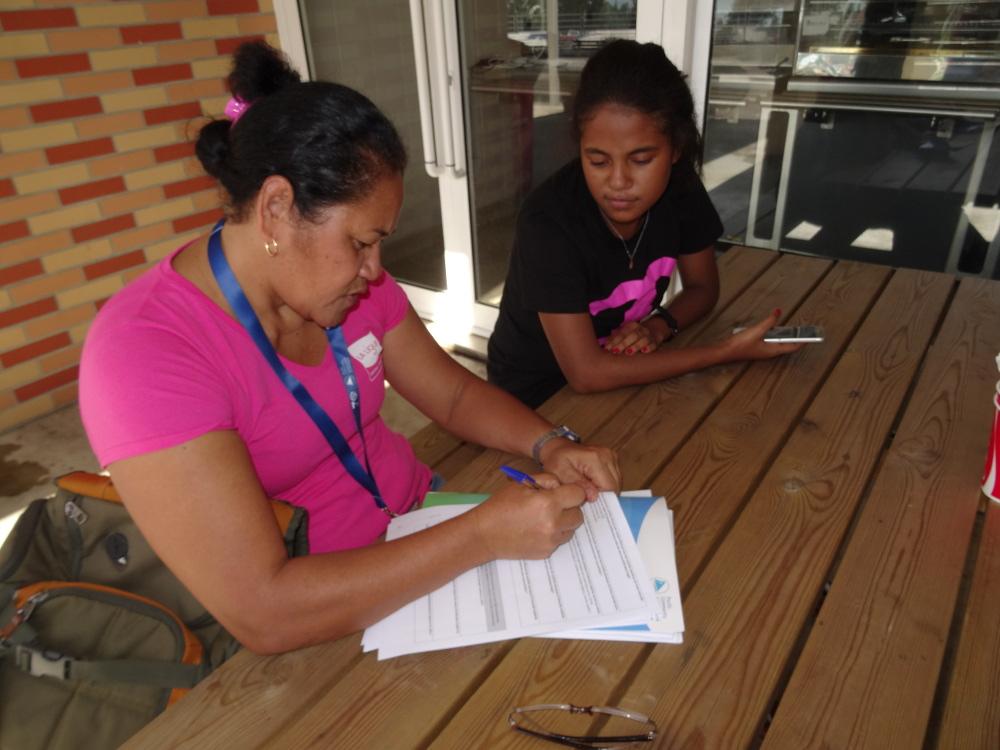This week the Pacific Community (SPC) Public Health Division has held a training session in Papeete to help health promotion workers from Wallis and Futuna, New Caledonia, French Polynesia and Vanuatu learn how to collect and analyse non-communicable disease (NCD) data.
NCDs such as diabetes, heart diseases, chronic respiratory diseases and cancers are the leading cause of death in the Pacific, accounting for 60% to 75% of deaths in most countries. NCDs are closely tied to lifestyle, including unhealthy food and drink, physical inactivity, smoking and alcohol abuse. So in order to undertake relevant and effective health promotion activities, these health professionals need to have accurate information on the behaviours of their target populations.
The first training session took place in Noumea in June and was designed to teach participants how to develop questionnaires, gather field data and complete data entry with the information collected.
The decision was made to focus data collection on young women aged 18 to 25. “We chose that age group because it has not been studied much in the Pacific. However, at this stage in life there are a series of important life events such as ending school, beginning a serious relationship, starting work, and having a baby. It is a time when young women are making important life choices, so it is a unique window of opportunity to encourage healthy lifestyles and behaviours. That is why this section of the population is a priority target group for health promotion work in communities,” explained Solène Bertrand-Protat, SPC’s Non-communicable Diseases Adviser.
Following the first session, participants returned to their respective countries to put the skills they had gained to work. They interviewed 50 young women about their diets, exercise, weight, etc. The second training session, held with the support of French Polynesia’s Health Department, will focus on analysing the data collected and how to share that information effectively.
Besides the training session’s technical aspects, it is also designed to strengthen ties between French-speaking health professionals throughout the Pacific, who face the same issues despite their different circumstances.
“We have a lot to learn from our Pacific neighbours,” said Adélaïde Tamaku, a health promotion worker in Tahiti. “It has been a very enriching training course. I work on the island of Malekula and this is the first time I have been able to talk with health professionals from the French territories,” said Guenola Tangop, a nurse from Malampa Province in Vanuatu.
The next phase of the training will target managing health promotion projects: after data collection and analysis, it will be time to move on to the work itself.
Media contacts
Jean-Noel Royer, Communication Officer, SPC: [email protected] or +687 87 70 63
Solène Bertrand-Protat, Non-communicable Diseases Adviser, SPC: [email protected]
